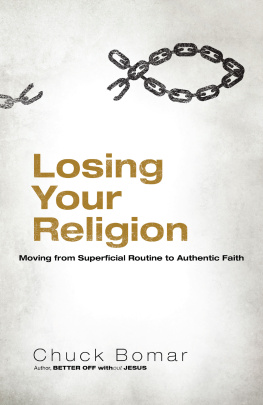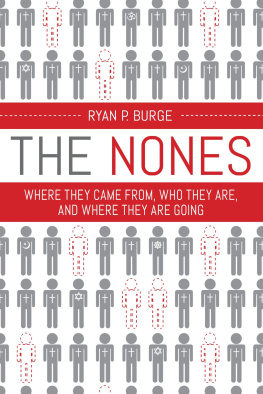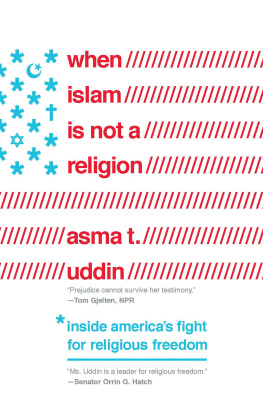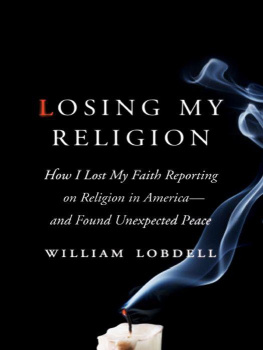 Faith No More This page intentionally left blank Faith No More Why People Reject Religion P hil Zuckerman Oxford University Press, Inc., publishes works that further Oxford Universitys objective of excellence in research, scholarship, and education. Oxford New York Auckland Cape Town Dar es Salaam Hong Kong Karachi Kuala Lumpur Madrid Melbourne Mexico City Nairobi New Delhi Shanghai Taipei Toronto With offi ces in Argentina Austria Brazil Chile Czech Republic France Greece Guatemala Hungary Italy Japan Poland Portugal Singapore South Korea Switzerland Th ailand Turkey Ukraine Vietnam Copyright 2012 by Oxford University Press, Inc. Published by Oxford University Press, Inc. 198 Madison Avenue, New York, New York 10016 www.oup.com Oxford is a registered trademark of Oxford University Press All rights reserved. No part of this publication may be reproduced, stored in a retrieval system, or transmitted, in any form or by any means, electronic, mechanical, photocopying, recording, or otherwise, without the prior permission of Oxford University Press. Library of Congress Cataloging-in-Publication Data Zuckerman, Phil.
Faith No More This page intentionally left blank Faith No More Why People Reject Religion P hil Zuckerman Oxford University Press, Inc., publishes works that further Oxford Universitys objective of excellence in research, scholarship, and education. Oxford New York Auckland Cape Town Dar es Salaam Hong Kong Karachi Kuala Lumpur Madrid Melbourne Mexico City Nairobi New Delhi Shanghai Taipei Toronto With offi ces in Argentina Austria Brazil Chile Czech Republic France Greece Guatemala Hungary Italy Japan Poland Portugal Singapore South Korea Switzerland Th ailand Turkey Ukraine Vietnam Copyright 2012 by Oxford University Press, Inc. Published by Oxford University Press, Inc. 198 Madison Avenue, New York, New York 10016 www.oup.com Oxford is a registered trademark of Oxford University Press All rights reserved. No part of this publication may be reproduced, stored in a retrieval system, or transmitted, in any form or by any means, electronic, mechanical, photocopying, recording, or otherwise, without the prior permission of Oxford University Press. Library of Congress Cataloging-in-Publication Data Zuckerman, Phil.
Faith no more : why people reject religion / Phil Zuckerman. p. cm. Includes bibliographical references and index. ISBN 978-0-19-974001-7 (acid-free paper) 1. 2. 2.
Ex-church membersUnited States. 3. Non-church-affi liated peopleUnited States. 4. AtheismUnited States. 5.
United StatesChurch history21st century. 6. Religion and sociologyUnited States. I. Title. BR517.Z83 2011 277.3'083dc22 2011007917 1 3 5 7 9 8 6 4 2 Printed in the United States of America on acid-free paper CONTENTSThis page intentionally left blank I would like to thank Pitzer College for several grants that helped support the research for this book.
I would also like to thank my graduate research assistant, Kerri Blumenthal, as well as my undergraduate research assistants: Alexandria A. Bannerman, Erin Caliri, David R. Casler, Sasha Cohen, Cassandra Cona, Amanda J. Curtis, Melanie H. Epstein, Maxamilien Fortgang, Sylvie Froncek, Sophia Galano, Jyoti Gautam, Samuel Greene, Alejandra Gillette-Teran, Sophie Goodwin, Jerry Johnson, Rhonda Kruschen, Steven Losco, Korin Nadelle, Morgan Peterkin, Jonny Robertson, Travis Luke Rooke-Ley, and Brittni Stenmo. I am also indebted to my colleagues: Ryan Falcioni, Luke Galen, Sandy Hamilton, Shayne Lee, Peter Nardi, John Norvell, Frank Pasquale, and James Spickard.
Finally, my earnest gratitude goes out to Th eo Calderara, Dan Burke, Gary Cienmarcos, Marvin Zuckerman, and Stacy Elliott. This page intentionally left blank Faith No More This page intentionally left blank A wind of secularity is currently blowing across North America. No one can predict the overall course of this wind whether it will gain speed in the years ahead or eventually run its course and peter out. But for now, it is blowing quite steadily. Th e growth of irreligion in the United States in recent years is undeniable. According to sociologists Barry Kosmin and Ariela Keysar, the increase in the number of Americans eschewing religion in recent years has been one of the most important trends on the American religious scene.
Surveys tell much of the story. According to the American Religious Identifi cation Survey, 15% of Americans now claim none as their religion, up from 8% back in 1990a near doubling of nones in 20 years. Th ese fi ndings were supported by the Pew Forums U.S. Religious Landscape Survey, which reports that 16% of Americans are religiously unaffi liated. According to the Harris Poll, in 2003, 4% of Americans were atheist, in 2006 it was 6%, and in 2008, the number was 10% with another 9% being agnostic. Th ese are the highest rates of atheism/agnosticism ever reported in an American survey.
Finally, a 2009 survey undertaken by the nationally syndicated Parade magazine found that 27% of Americans do not practice ( 3 ) ( 4 ) Faith No More any religion and 22% said that religion was not a factor in their lives. Again, these are the highest levels of secularity among Americans ever seen Th e recent growth of secularity in the United States is evident in other ways as well. Th ere has been a slew of best-selling books in the last few years that are highly critical of religion, namely Sam Harriss Th e End of Faith ( 2004 ), Christopher Hitchenss GodIs Not Great ( 2007 ), and Richard Dawkinss The God Delusion ( 2006 ). Additionally, there has been a notable growth recently among atheist groups in America, such as the Freedom from Religion Foundation, which reported an unprecedented 25% membership increase in 2006 alone. Th e Secular Student Alliancea college campus group for nonbelieversnow claims over 200 chapters nationwide, up from 42 in 2003. And secu larity has skyrocketed among younger Americans, of which the percentage of religious nones is estimated to be somewhere between 30% and 40%.
One recent study found that only 53% of Americans born after 1981 believe in God. Th is increase in irreligion is not occurring because secular peo ple are having a ton of babies. Quite the contrary; it is the strongly religious who have the most kids. In fact, compared to all religious groups, nonreligious people are the least likely to have lots of children. Th is means that most of the nonreligious people in America today were actually raised with some religion, and then at a certain point, they opted out. Th ey rejected their religion.
Th ey became apostates. Th us, in the words of social psychologists Bruce Hunsberger and Bob Altemeyer, the real story underlying the increase of secularity in North America is the growth in apostasy. Th e word apostasy comes from the Greek apostasia, which means a defection or revolt. Benjamin Beit-Hallahmi defi nes apostasy as disaff ection, defection, alienation, disengagement, and disaffi liation from a religious group. David Caplovitz and Fred Sherrow defi ne apostasy as the relinquishing of a set of religious beliefs but add that apostasy involves not only a loss of faith, but rejection of a particular ascriptive community as a basis for self-identifi ca-I N T R O D U C T I O N ( 5 ) tion. David Bromley succinctly defi nes apostates as individuals who once held a religious identity but no longer do so.
Just as with religiosity, there are various forms or types of apostasy. Armand Mauss has put forth a three-type classifi cation, based on the reasons that underlie individuals withdrawal from religion: intellectual apostasy (they just dont believe anymore), social apostasy (a disintegration of social bonds with coreligionists or the formation of social ties outside ones religious community), and emotional apostasy (one has psychological reactions to perceived church hypocrisy, or one comes to apos tasy as an outgrowth of an unhappy family life). Merlin Brinkerhoff and Kathryn Burke off er another three-type classifi cation: ritu-alists who have lost some or all of their religious beliefs, but continue to identify with a religious community and still participate in various ceremonies and rituals, outsiders who still maintain clear religious beliefs but no longer identify with a religious community, and fi nally true apostates, those who have both lost their religious beliefs and become totally disaffi liated from a religious communit Based on my own analysis of interviews with 87 people who were once religious but are no longer, I can off er my own typology of apostasy. First, in acknowledgment of when in the course of his or her life an individual rejects religion, we can make a distinction between early apostasy and late apostasy. Th e former refers to individuals who were raised in a religious home and were socialized into a religious identity as children without much of a conscious choice in the matter, who then go on to reject that religion as soon as they became teenagers or young adults. In other words, they shed their religion once they were no longer under the direct infl uence of their families.
Next page






 Faith No More This page intentionally left blank Faith No More Why People Reject Religion P hil Zuckerman Oxford University Press, Inc., publishes works that further Oxford Universitys objective of excellence in research, scholarship, and education. Oxford New York Auckland Cape Town Dar es Salaam Hong Kong Karachi Kuala Lumpur Madrid Melbourne Mexico City Nairobi New Delhi Shanghai Taipei Toronto With offi ces in Argentina Austria Brazil Chile Czech Republic France Greece Guatemala Hungary Italy Japan Poland Portugal Singapore South Korea Switzerland Th ailand Turkey Ukraine Vietnam Copyright 2012 by Oxford University Press, Inc. Published by Oxford University Press, Inc. 198 Madison Avenue, New York, New York 10016 www.oup.com Oxford is a registered trademark of Oxford University Press All rights reserved. No part of this publication may be reproduced, stored in a retrieval system, or transmitted, in any form or by any means, electronic, mechanical, photocopying, recording, or otherwise, without the prior permission of Oxford University Press. Library of Congress Cataloging-in-Publication Data Zuckerman, Phil.
Faith No More This page intentionally left blank Faith No More Why People Reject Religion P hil Zuckerman Oxford University Press, Inc., publishes works that further Oxford Universitys objective of excellence in research, scholarship, and education. Oxford New York Auckland Cape Town Dar es Salaam Hong Kong Karachi Kuala Lumpur Madrid Melbourne Mexico City Nairobi New Delhi Shanghai Taipei Toronto With offi ces in Argentina Austria Brazil Chile Czech Republic France Greece Guatemala Hungary Italy Japan Poland Portugal Singapore South Korea Switzerland Th ailand Turkey Ukraine Vietnam Copyright 2012 by Oxford University Press, Inc. Published by Oxford University Press, Inc. 198 Madison Avenue, New York, New York 10016 www.oup.com Oxford is a registered trademark of Oxford University Press All rights reserved. No part of this publication may be reproduced, stored in a retrieval system, or transmitted, in any form or by any means, electronic, mechanical, photocopying, recording, or otherwise, without the prior permission of Oxford University Press. Library of Congress Cataloging-in-Publication Data Zuckerman, Phil.